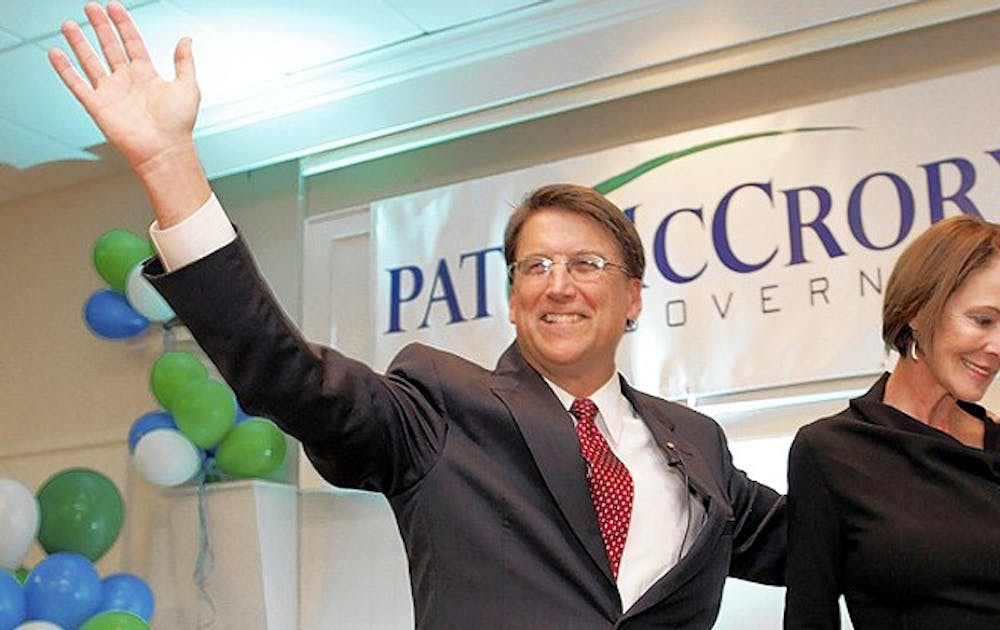Former Charlotte Mayor Pat McCrory was elected governor of North Carolina Tuesday.
McCrory, a Republican, beat Lt. Gov. Walter Dalton for current Gov. Bev Perdue’s seat by a margin of 55 to 43 percent. The first Republican to win the seat in 20 years, McCrory has pledged to improve a North Carolina economy that he says has slumped in the last five to 10 years and proposes to make some cuts to the state budget. Some critics argue that the cuts would hurt the state higher education system.
The lieutenant governor race was not clearly decided by 3 a.m. Wednesday. Republican candidate Dan Forest declared victory with a lead of approximately 11,200 votes with all counties reporting, but Democratic candidate Linda Coleman had not conceded.
McCrory thanked the people of North Carolina in his acceptance speech in Charlotte, adding that he looks forward to continuing to build a relationship with the state for “at least” four years.
“There’s a sense of urgency in this state right now,” McCrory said. “People are hurting right now. People are worried about their future. And that’s what we’re going to begin working on immediately.”
McCrory also reached out to Dalton, noting that he was in his position four years ago.
“I know exactly what he’s going through, and my heart is with him and his family,” McCrory said. “He works very hard, and I thank him for his service to our state.”
Dalton said in his concession speech that he joined the race because of his love for North Carolina and its history, and noted that he is proud of what he has accomplished during his tenure as lieutenant governor.
“We have fought the good fight under difficult circumstances,” Dalton said. “We have not lost, because we have been on the side of opportunity and progress for this state.”
Dalton did not enter the race until January of this year, whereas McCrory—who lost the race for governor in 2008—started fundraising four years ago, said Ford Porter, press secretary for Dalton’s campaign.
Porter said Dalton felt compelled to enter the race to stand up for families, teachers and students, as well as funding for research.
“McCrory has supported cuts every step of the way and has put forward a plan raising taxes on eight of 10 North Carolinians,” he said. “That’s why the lieutenant governor entered the race.”
Ricky Diaz, press secretary for McCrory’s campaign, could not be reached for comment.
Michael Schoenfeld, vice president for public affairs and government relations, said McCrory’s cuts will not directly affect Duke since it is a private institution.
“We’re confident that [McCrory] will recognize the value of higher education to the state and the value that research institutions like Duke provide to the state,” Schoenfeld said. “We look forward to working with him.”
Mac McCorkle, a former Democratic political consultant and associate professor of the practice of public policy, said that if McCrory makes cuts to higher education, Duke will feel the effects because of its close partnerships with the University of North Carolina at Chapel Hill and North Carolina State University. He noted that many students take classes at both Duke and UNC and professors share work with each other.
“Obviously they can’t cut the education [funding] at Duke, but we have quite a powerhouse triangular relationship and to the extent that that’s threatened, that could hurt Duke,” McCorkle said.
McCrory said he will work with Perdue’s current administration to “make the transition as smooth as possible.”
Get The Chronicle straight to your inbox
Signup for our weekly newsletter. Cancel at any time.

